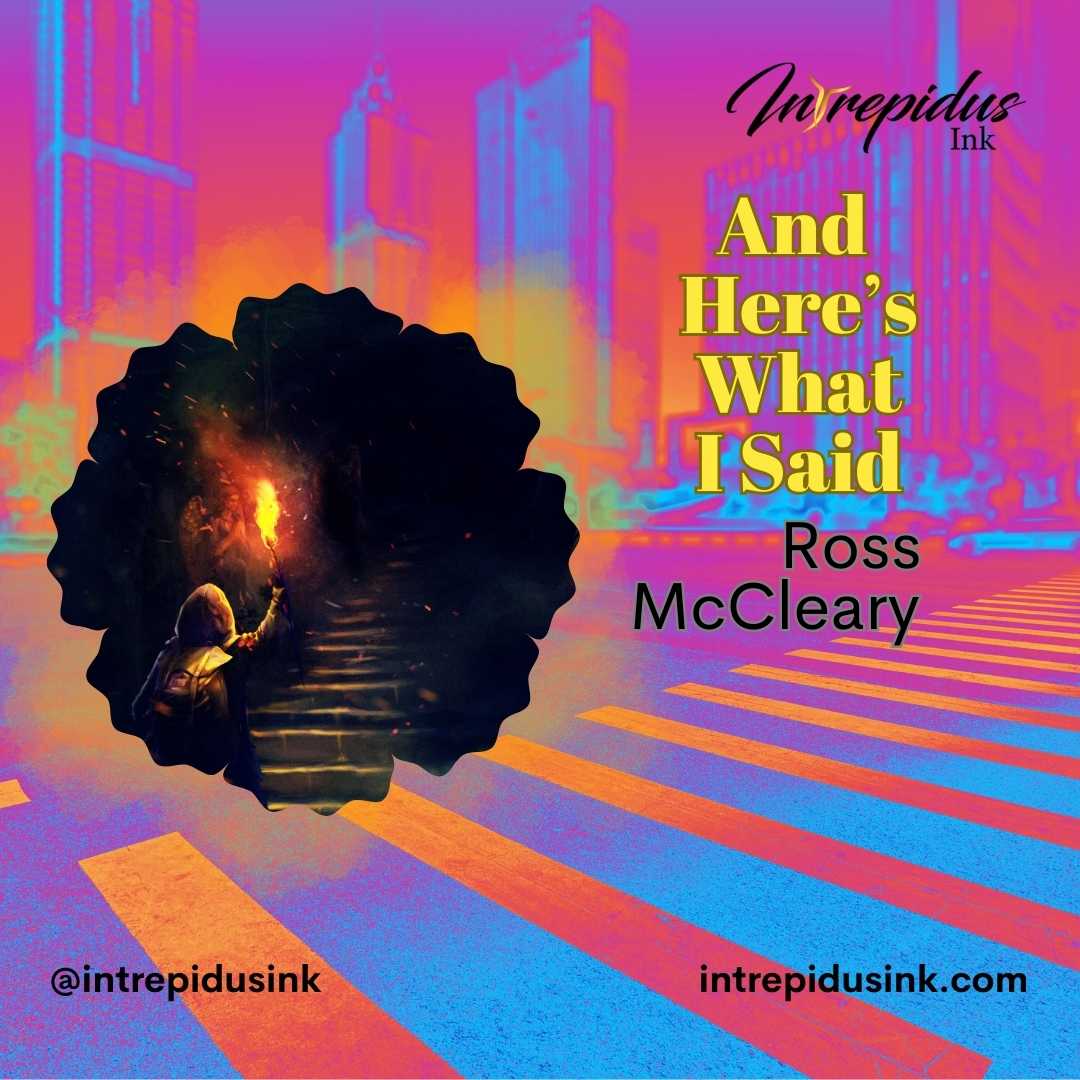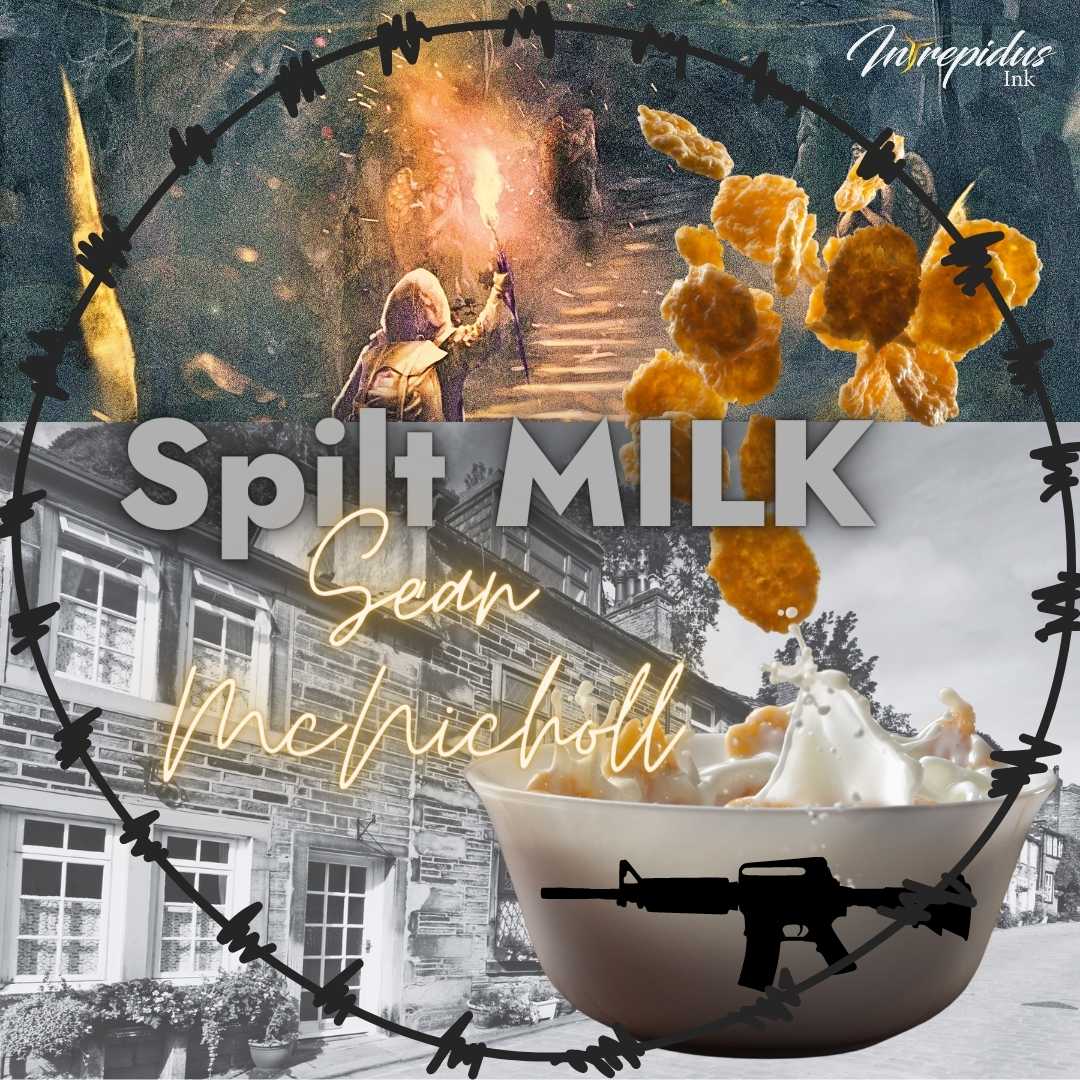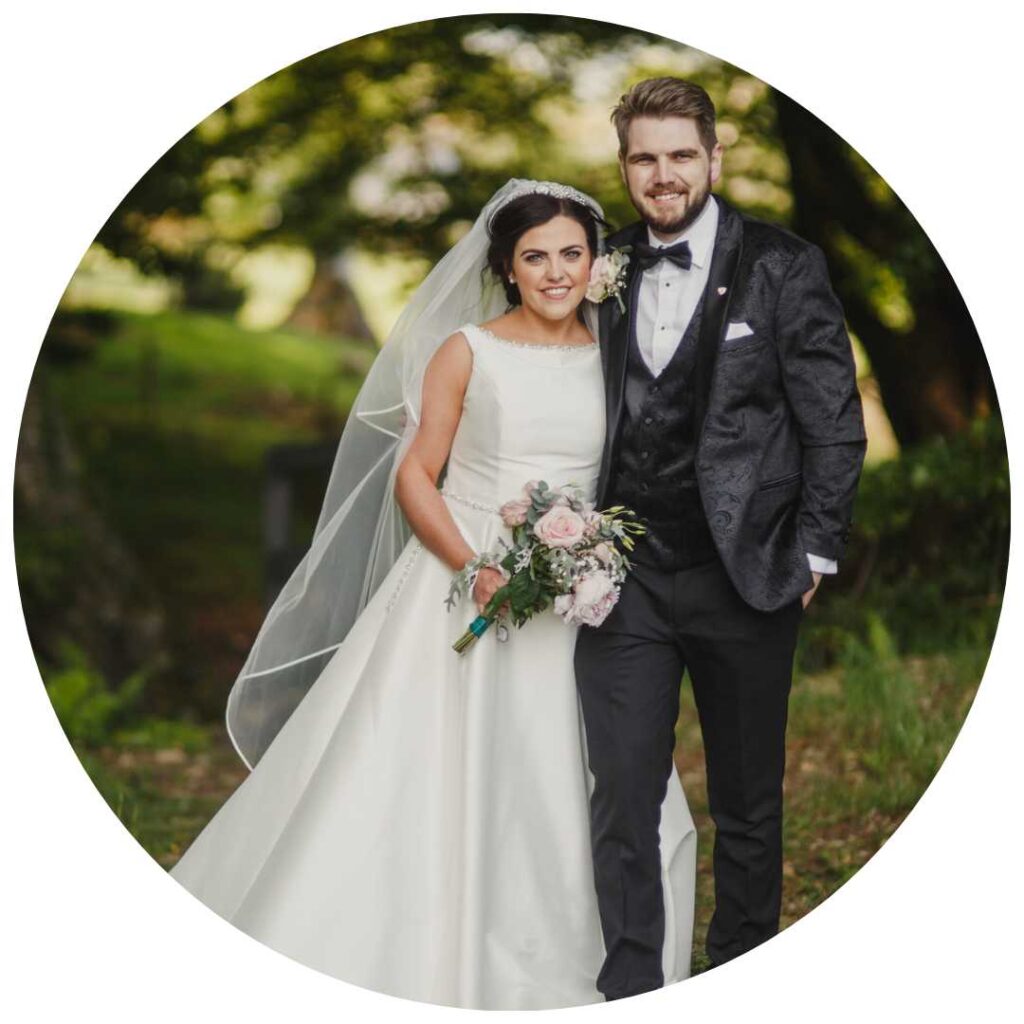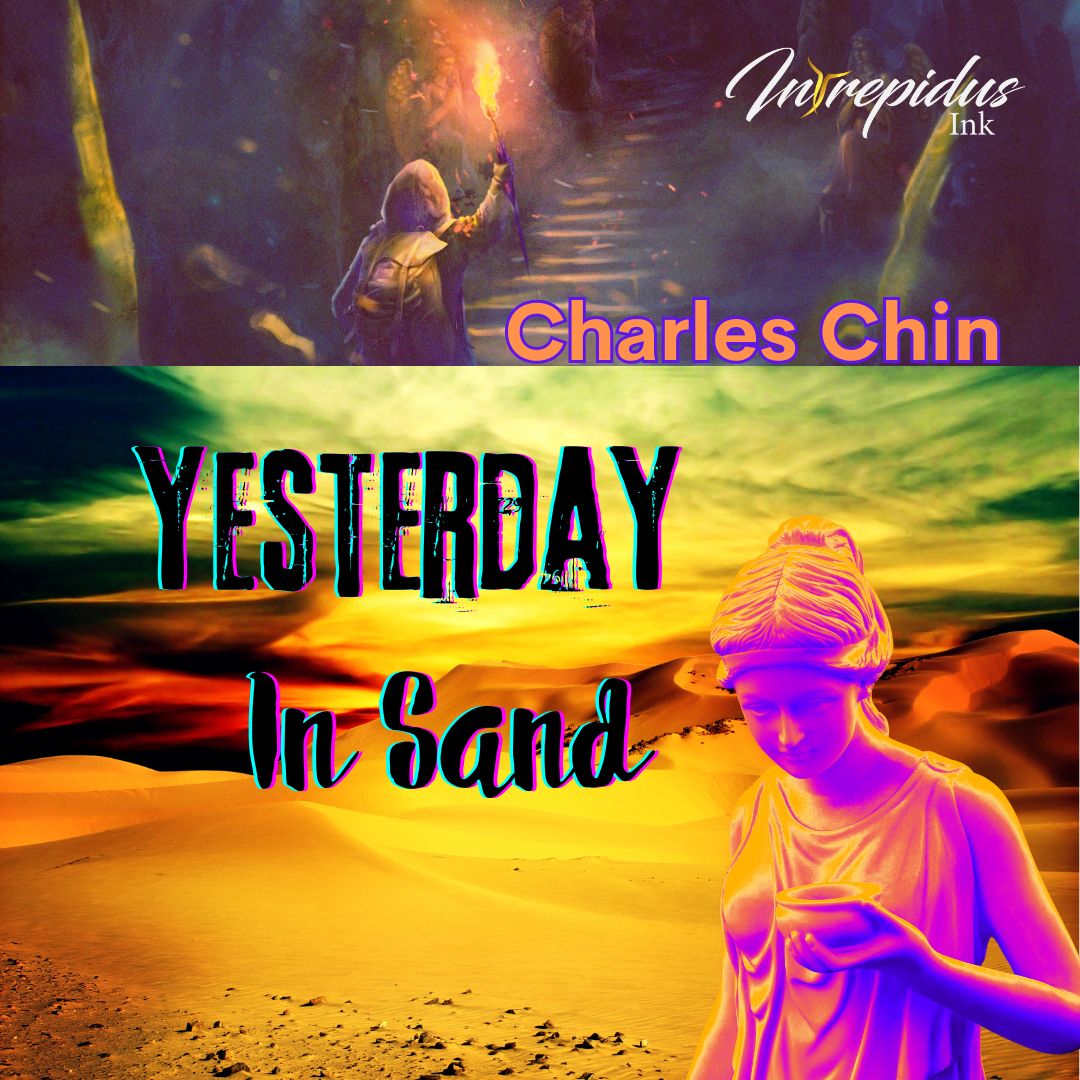

Action Adventure
G ood morning, it’s nine o’clock. You’re listening to BBC Radio Ulster. The headlines: A soldier has been shot dead in an IRA ambush on the streets of Belfast. Elsewhere in the province, a bomb attack has resulted in significant damage to a telecommunications mast in County Armagh. A man and a woman have been shot dead in their home outside the village of Moy, County Tyrone. And in Russia, Mikhail Gorbachev has become the Soviet Leader following the death of Konstantin Chernenko.
The air hung heavy with the foggy dew of a February morning, pawing at the window. I sat rigid at the table, uncomfortable in the starched school shirt that was too small but would see me through to the end of the year. The cornflakes Ma poured into my bowl tinkled merrily against the threatening chorus outside — the regimented tramp of a platoon of British Lancers echoing through the single-pane window. The footfalls of the soldiers’ heavy boots harmonised with the melodic jingle of rifles clashing against their belts. The soldiers passed by our home, unseen in the fog. A siren and the passing drone of a Chinook helicopter drowned out the sounds, tremoring the milk bottle on the table, but neither Ma nor me paid heed—nothing new for a Belfast morning.
A little milk splashed onto the table as Ma filled the bowl and seeped down into the wood grains of the table before a cloth could be had. The sound of the siren and Chinook died into the distance.
I thought of Da, passing by the soldiers with a bottle of milk in one hand and a wave in the other, moving like a ghost among them on his rounds.
“Hurry yourself up, or you’ll be late,” Ma said before dragging the hairbrush through my tattered mane, which I insisted looked better rough, like Lennon or McCartney. The futility of it was lost on her–though her annoyance was clear when I ran my fingers through it, immediately undoing her hard work.
“Have you your prayers said?”
“Yes,” I lied, not daring to look up at the reproachful eyes of the Sacred Heart picture that hung from the wall. In my mind’s eye, I saw its little red light blaze and rebuke me. “Well, no. But I’ll say them on my way to school. I promise.”
Ma sighed. “You will in me arse.”
The little radio sitting on the counter spat a Hugo Duncan crooning song my mother liked, and she hummed to herself and flitted from mother job to mother job; cleaning and wiping, hanging the wet clothes, and folding the dry.
I shovelled in a mouthful, allowing the crunch to drown the world around me.
“Ma, sugar, please,” I said, mouth still full, sending a burst of cornflake shrapnel into the air.
She whisked the sugar over and wiped down the table once more, humming the dying notes of the song.
I sat in Da’s chair in imitation of the man of the house. He was never there in the mornings. He was the milkman, passing through the local streets in his van before the cocks had time to clear their throats, swapping empty bottles for full ones, often with only the dawning sun for company.
He’d tut, and he’d sigh as he trundled past the burnt-out cars and the bombed-out bars of Belfast. He’d nod to soldier and gunman alike as he made his rounds and meow to the black and tanned cats that prowled the streets, for few others were out that early.
That’s how he was known; open, friendly, peaceful.
“We’re all born the same, we all die the same,” he’d say, “and we’re all the same in between.”
That’s how he raised me; free from the hatred and division that festered in our town, its putrid stench lingering on every corner. But I never liked the sight of the soldiers, with their tanks, and guns, and coils of barbed wire. The boys in school would talk about their fathers, leaving in the night in khaki clothes and balaclavas to lay in ambush with rifles and revolvers. I didn’t talk like that. I was called a coward.
I took another spoonful of cereal, much more to my taste this time, the flakes not offering as much resistance.
“Fix your tie, will you? You look like you were reared in a field; that’s no way to be heading off to school.”
The usual scolding from Ma on a weekday morning.
The song on the radio ended and rang eight bells. A familiar voice greeted us. “Good morning; it is eight o’clock, and you’re listening to BBC Radio Ulster. The headlines.”
We continued our customs; me chewing, Ma cleaning.
Crunch, wipe, fold.
And the radio said, “There’s another shot dead on the streets of Belfast. Early reports say he died with a gun in his hand.”
Crunch, wipe, fold.
The reporter prattled on about other disturbances, the humdrum of the politicians, the rise of fuel costs. Another Belfast morning, the same old routine. I wondered if the soldiers would make me late for school.
Crunch, wipe, fold.
The knock at the door–three heavy raps– broke the dullness.
I looked at Ma. Her eyes were wide. With Da on the rounds, I was the man of the house. I started to rise, but Ma’s firm hand lowered me to my seat.
“Stay,” she ordered and I obeyed.
I watched her as she stepped from the kitchen, a drying cloth in hand. I heard her gasp from the hallway as she opened the door. I knew what that meant.
The chill of the foggy dew rushed the open door and seized me.
The officer stood the entire time, directly across from me in the kitchen. Between us, upon the table, the bowl of cereal sat unfinished; islands of orange flakes bobbed on a placid sea of white.
The radio was silent now, freeing the stage for the solemn tick-tock of the clock.
The officer’s uniform was clean and crisp, with the dark green jacket buttoned professionally. He did not remove his cap emblazoned with a harp donning a crown.
“I’m very sorry,” he said without emotion, “very sorry for your loss.”
Tick-tock.
He cleared his throat and looked between Ma and me. She cried silently now. Her reddened eyes bore the pain, tears spilling over her blotchy cheeks.
I stared at his tie. It was fitted right up to the collar, neat to his neck. He wasn’t reared in a field, I thought.
“How?” Ma started but was ambushed by a sob.
“Your husband was seen prowling in the fog up Fitzgibbons Street. I’m told he carried a revolver. The army opened fire, and he… well, he….”
Tick-tock.
“I’m very sorry,” he repeated.
The silence that fell rotted into the intolerable discomfort, putrefying the air.
Tick-tock.
“No,” I said though my throat was dry. “Da wouldn’t have–he couldn’t have–he didn’t have a gun. He wasn’t involved.”
The officer nodded to pacify me, but his eyes betrayed his lack of belief.
“We will, of course, carry out a full investigation once the army has completed their assessment.”
Empty words, I thought.
Tick-tock.
The officer saw himself out and, in his wake, was left the true absence of Da. The Sacred Heart gazed mournfully out at us, the electric candle flickering. In the bowl, the cornflakes were sodden and congealed.
Here I lie in the foggy dew of the morning.
It took twelve years–twelve tormented years and an independent commission–for the truth of Da’s death to come to light.
Corruption.
Collusion.
Cover up.
Damn whatever name they call it. There was no gun. The soldier mistook a bottle of milk for a revolver and opened fire without a word of warning. My Da. Dead. Over a bottle of milk. They say there’s no point crying over spilt milk. I hate that saying.
Ma never got over it, went to her grave without knowing the truth, and now lies beside Da, just like they did in their bed. Born the same. Died the same.
I am not the same as I was. Anger had consummated with my grief, birthing–through years of painful cries–the distorted child of hate. I changed at eight o’clock that February morning.
I enlisted as soon as I could. Not to free my country, not for injustice. Just for revenge. I have done awful things. Terrible things. But I make no moans about it. I do not apologise for it to any man or god.
We are all born the same. We die the same. But we are not the same.
So now here I lie, in the foggy dew of the morning, with my rifle, awaiting the jingle of an oncoming platoon.
I wonder what the radio will say.
The footfall breaks the fog first, slow, methodical steps. My rifle dances in my hand, my breath ragged and broken. I feel the unseen eyes of the Sacred Heart on me. Or are they my father’s? His face flashes before me.
Our family was torn apart by violence, and here am I to tear another family asunder.
The platoon steps into my sight. The trigger feels heavy. The air is thick and hard to breathe. I cannot move.
The crack of rifle fire explodes behind me, jolting me to life.
My ears ring. A soldier falls. The platoon retreats, firing wildly. My leg sears. My comrade runs. I remain still. Blood oozes.
The enemy soldier’s cries replace the ringing–he calls, begs, pleads for help. But he is alone. Abandoned to die. My wound is bleeding fast. My father’s words fleet before me. We’re all born the same; we all die the same.
The soldier sees me, sees my rifle, and yet, he’s begging for mercy.
I crawl closer to him. His cheeks are wet with tears. He’s stammering about his family, words short and incoherent. He looks about my age, the birth of stubble breaking his baby-smooth cheeks. Blood spills from his stomach, pooling on the road, and mingles with mine, inseparable, indistinguishable.
I remove my khaki jumper and press it into his wound. He whimpers and then goes quiet.
I remain silent. I press and wait, and the jumper dampens and stains.
The sirens pierce the morning and approach. The whir of a Chinook looms.
I stay until I see the ambulance lights turn onto the street, then retreat into the shadows, my rifle in hand.
Thank you, follows me into the gloom.
*
Good morning, it’s nine o’clock. You’re listening to BBC Radio Ulster. The headlines: A soldier has been injured in an IRA ambush on the streets of Belfast.
Author Bio


